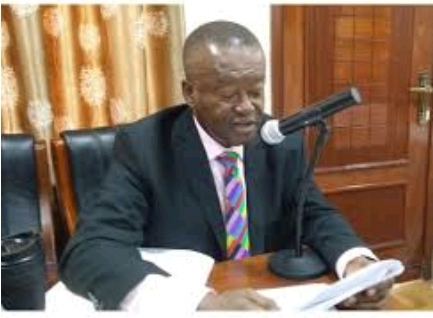CSO COMPLAINS TO CHIEF JUSTICE
…Appeals Court, Leonoil ‘Hide & Seek’ Games…

A letter dated 25th November 2024, coming from the West Africa Youth Assembly (WAYA) to the Honourable Chief Justice Nicholas C. Browne-Marke, suggests ongoing skirmishes within the judicial system of Sierra Leone that calls for urgent resolution, with a particular reference to the alleged delay in the legal proceedings involving Jaffer Zeghir and LeonOil Company.
The letter is specifically an urgent call for timely resolution of the ongoing legal dispute between the two parties.
WAYA has, therefore, expressed a deep concern, and waiting for a response from the judiciary as it says the matter underscores the need for a more agile and transparent judicial process.
“The allegations surrounding this case underscore the urgent need for a thorough examination of the timeliness and effectiveness of the country’s justice system, WAYA thinks, stating that prolonged delays in such matters can deter local investors and undermine public confidence in our legal framework.
“The extended nature of this case not only affects the parties directly involved but also raises significant concerns about the judiciary’s responsiveness to issues that have far-reaching implications for individuals and businesses alike,” the WAYA letter points out, as it respectfully urges the Chief Justice to consider assigning judges from the Court of Appeal to expedite proceedings in this matter, noting that a “swift resolution is essential to prevent unnecessary delays that could lead to further complications and unwarranted criticism from us as civil rights Activists.”

WAYA opines the stakes are high, and the ramifications extend beyond the courtroom, impacting livelihoods and business operations.
“As advocates for vulnerable individuals, we remind the judiciary that its mandate is derived from the Constitution, and we expect a steadfast commitment to delivering justice for all”.
By WAYA’s letter, it is suggestive the case is being delayed, raising several pressing questions, including on the factors that have contributed to the delay in addressing the legal dispute following the High Court’s favorable ruling for Jaffer Zeghir, especially considering the potential ramifications for his business; why the High Court orders are not respected as it stated in its previous ruling that Six Billion old Leones should be deposited by LeonOil Company into a joint account that will be open with Jaffar; what measures are in place to prioritize cases with significant economic implications to prevent undue hardship on individuals and businesses; how the judiciary plan to address public concerns regarding perceived biases or inefficiencies in handling high-profile cases; what steps the judiciary is taking to ensure that all parties are treated fairly and that justice is served without prejudice; and how the judiciary can enhance its communication with the public to clarify its role and dispel any misconceptions that may arise during legal disputes, particularly as prompt action is anticipated?
According to WAYA, the situation surrounding Jaffer Zeghir and LeonOil Company serves as a reminder of the critical role the judiciary plays in maintaining order and fairness in society, noting that as these legal proceedings unfold, it is imperative for the justice system to demonstrate its commitment to transparency, accountability, and the rule of law.
The civil rights based Assembly believes the public trust in the judiciary hinges on its ability to navigate complex cases efficiently and equitably, stating that as stakeholders await resolution, it is essential for the judiciary to not only address the immediate concerns raised by this case but also to implement systemic reforms that enhance its responsiveness and effectiveness.
WAYA says the judiciary can reinforce its role as a pillar of justice by prioritizing cases with significant economic implications, addressing public concerns about biases, and improving communication with the public, adding that the ensuring timely and fair resolutions will not only benefit the parties involved but also strengthen public confidence in the entire legal system.